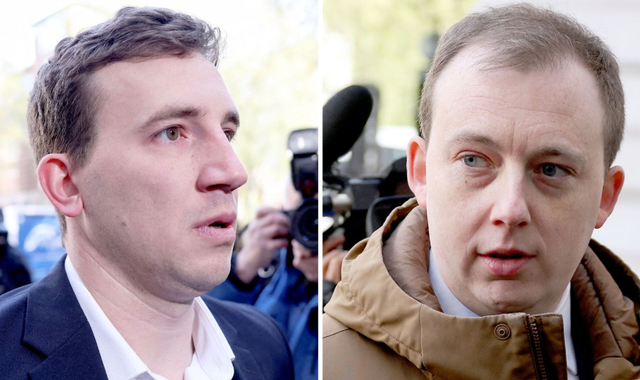Christopher Berry, 33, and former parliamentary researcher Christopher Cash, 30, were accused of espionage for China.
But the Crown Prosecution Service (CPS) announced on 15 September that the charges would be dropped, sparking criticism from Downing Street and MPs.
Berry, of Witney, Oxfordshire, and Cash, from Whitechapel, east London, had denied accusations of providing information prejudicial to the interests of the state in breach of the Official Secrets Act between December 2021 and February 2023.
Politics latest: Badenoch insists ‘Jenrick is not the Tory leader’
Stephen Parkinson, the director of public prosecutions (DPP), told MPs in a letter on Tuesday that the CPS had tried “over many months” to get the evidence it needed to carry out the prosecution, but it had not been forthcoming from the Labour government.
However, Sir Keir Starmer insisted the decision to brand China a threat would have to have been taken under the last Conservative administration.
The prime minister said: “You can’t prosecute someone two years later in relation to a designation that wasn’t in place at the time.”
It is understood that the decision to end the case came after a meeting of senior officials which, according to The Sunday Times, included Jonathan Powell, the national security adviser, and Sir Oliver Robins, the Foreign Office’s top diplomat.
To prove the case under the Official Secrets Act of 1911, prosecutors would have to show the defendants were acting for an “enemy”.
Both the current Labour government and the previous Conservative governments have not labelled China a risk to national security.
In his letter to the chairs of the Commons home and justice select committees, Mr Parkinson said: “It was considered that further evidence should be obtained.
“Efforts to obtain that evidence were made over many months, but notwithstanding the fact that further witness statements were provided, none of these stated that at the time of the offence China represented a threat to national security, and by late August 2025 it was realised that this evidence would not be forthcoming.
“When this became apparent, the case could not proceed.”
He also pointed out that in a separate case about Russian spying last year, a judge ruled that an “enemy” under the 1911 Act must be a country that represents a threat to national security of the UK “at the time of the offence”.
How has the government responded?
Sir Keir has addressed the contents of the letter, which he said he had “read at speed”, while on board a flight to Mumbai, as part of the UK’s largest ever trade mission to India.
The PM said: “What matters is what the designation [of China] was in 2023, because that’s when the offence was committed and that’s when the relevant period was.
“Statements were drawn up at the time according to the then government policy, and they haven’t been changed in relation to it, that was the position then.
“I might just add, nor could the position change, because it was the designation at the time that matters.”
Sir Keir, a former director of public prosecutions, added that he wasn’t “saying that defensively”, but because “as a prosecutor, I know that… it is what the situation at the time that matters”.
He also declined to criticise the CPS or the DPP, as he said “it’s wise not to”.
Since the alleged spying offences took place, the new National Security Act has superseded elements of the 1911 Act.
But Conservatives, including shadow home secretary Chris Philp, insist that Sir Keir has “very serious questions to personally answer”.






















